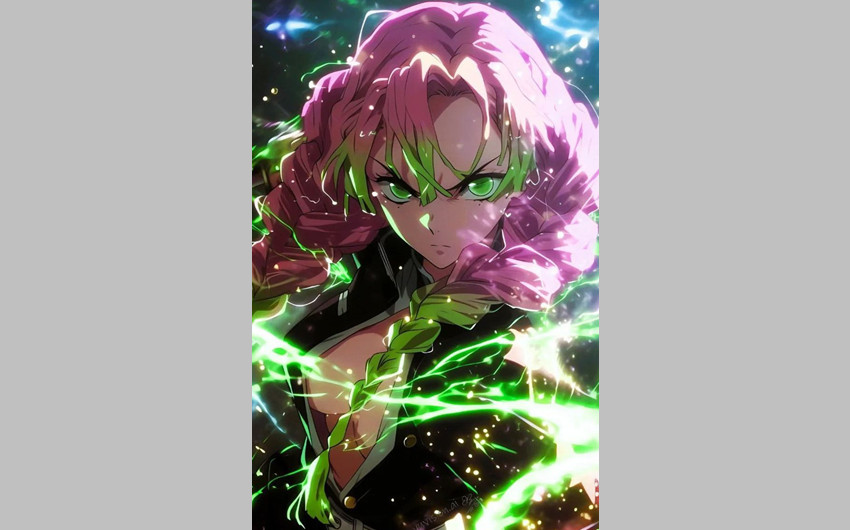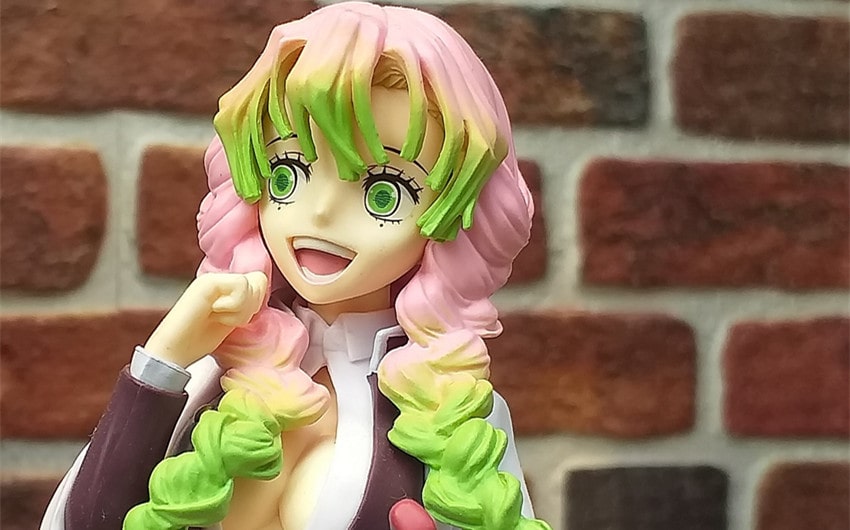The Ultimate Guide to Mitsuri Kanroji Name Meaning
Names in anime often carry deep meanings that reflect a character’s personality, traits, or role in the story. Mitsuri Kanroji, the cheerful and kind-hearted Love Hashira from Demon Slayer: Kimetsu no Yaiba, has a name that perfectly suits her warm and affectionate nature.
Exploring the Mitsuri Kanroji name meaning reveals interesting connections to sweetness, devotion, and even spiritual symbolism. Her name isn’t just a label—it adds depth to her character and reflects her unique presence in the series. Let’s dive into the meaning behind her name and how it relates to her personality and fighting style.
Kanji Breakdown and Literal Meaning of Mitsuri Kanroji
Mitsuri Kanroji’s name reflects her sweet, kind, and affectionate nature in Demon Slayer: Kimetsu no Yaiba. Each kanji carries symbolic meaning that aligns with her personality and role as the Love Hashira.
Mitsuri (蜜璃) – “Sweet and Pure”
- 蜜 (Mitsu) – “Honey” or “nectar,” symbolizing warmth, kindness, and love.
- 璃 (Rī) – “Crystal” or “glass,” representing clarity, beauty, and purity.
- Meaning: “Sweet clarity” or “pure-hearted warmth,” perfectly describing Mitsuri’s loving and open nature.
Kanroji (甘露寺) – “Temple of Sweet Nectar”
- 甘 (Kan) – “Sweet,” reinforcing her affectionate and gentle traits.
- 露 (Ro) – “Dew” or “nectar,” symbolizing divine blessings and nourishment.
- 寺 (Ji) – “Temple,” suggesting a place of protection and spiritual warmth.
- Meaning: “Sanctuary of divine sweetness,” mirroring her nurturing presence.
Symbolic and Cultural Meaning of Her Name

Image source: Pinterest
The name Mitsuri Kanroji is more than just a collection of kanji—it holds deep symbolic and cultural significance that perfectly aligns with her personality, fighting style, and role as the Love Hashira in Demon Slayer: Kimetsu no Yaiba. The meanings behind her name reflect love, devotion, and strength in kindness, reinforcing the themes of her character.
1. Symbol of Love, Affection, and Devotion
Mitsuri’s name carries strong associations with sweetness (蜜 – honey, 甘露 – sweet nectar), symbolizing her kind and loving nature. Her affectionate personality, emotional openness, and deep care for her comrades align with these meanings, making her name a direct reflection of her role as the Love Hashira.
Additionally, the concept of honey and nectar has long been associated with nourishment, warmth, and protection, reinforcing the idea that Mitsuri brings comfort and emotional strength to those around her. This symbolism fits perfectly with how she treats her allies with deep love and care, even in the midst of battle.
2. Connection to Her Fighting Style – Love Breathing
Her Love Breathing (恋の呼吸, Koi no Kokyū) fighting style is unique in that it is rooted in passion and emotion. The kanji in her name suggest purity and devotion, mirroring how her attacks are both graceful and powerful. Her combat style emphasizes:
- Fluid, dance-like movements, much like the flowing nature of nectar or honey.
- Unexpected strength hidden within kindness, paralleling the idea that sweetness and love are powerful forces.
- A warm, inviting aura that masks incredible combat abilities, much like how her name evokes gentle but deep-rooted strength.
This connection between her name and her fighting style emphasizes that love is not just tenderness but also resilience and strength, making her an inspiring character.
3. Cultural Significance of “Kanro” (Sweet Nectar) in Buddhism
The term Kanro (甘露) or “sweet dew” has spiritual significance in Buddhism, where it represents divine nectar, enlightenment, and blessings. This aligns with Mitsuri’s role as a source of warmth and positivity in the series, always uplifting those around her.
In Japanese culture, sweetness is also associated with gentle yet strong emotions, making her name a fitting representation of a warrior who fights with love rather than hatred. This concept highlights how kindness and compassion can be powerful forces, even in battle.
4. Representation of Beauty and Strength
Mitsuri’s name also reflects the duality of beauty and strength:
- The 璃 (Rī) in her name means “crystal” or “glass,” which represents delicate beauty and emotional transparency.
- However, her Kanroji (甘露寺) surname, meaning “Temple of Sweet Nectar,” suggests inner strength, balance, and protection.
This contrast embodies Mitsuri’s character—she appears delicate and cheerful, but beneath her kindness lies immense strength and determination.







